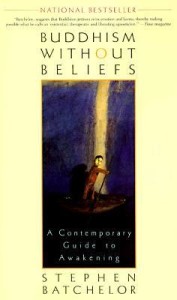“The world is full of power and energy and a person can go far by just skimming off a tiny bit of it.” — Neal Stephenson’s Snow Crash (pg 31; 1992)
“The business is a simple one. Hiro gets information. It may be gossip, videotape, audiotape, a fragment of a computer disk, a xerox of a document. It can even be a joke based on the latest highly publicized disaster.
He uploads it to the CIC database — the Library, formerly the Library of Congress, but no one calls it that anymore. Most people are not entirely clear on what the word “congress” means. And even the word “library is getting hazy. It used to be a place full of books, mostly old one.
Then they began to include videotapes, records, and magazines. Then all of the information got converted into machine-readable form, which is to say, ones and zeros. And as the number of media grew, the material became more up to date, and the methods for searching the Library became more and more sophisticated, it approached the point where there was no substantive difference between the Library of Congress and the Central Intelligence Agency. Fortuitously, this happened just as the government was falling apart anyway. So they merged and kicked out a big fat stock offering.
Millions of other CIC stringers are uploading millions of other fragments at the same time. CIC’s clients, mostly large corporations and Sovereigns, rifle through the Library looking for useful information, and if they find a use for something that Hiro put into it, Hiro gets paid.”
“The people of America, who live in the world’s most surprising and terrible country, take comfort in that motto. Follow the loglo outward, to where the growth is enfolded into the valleys and canyons, and you find the land of the refugees. They have fled from the true America, the America of atomic bombs, scalpings, hip-hop, chaos theory, cement overshoes, snake handlers, spree killers, space walks, buffalo jumps, drive-bys, cruise missiles, Sherman’s March, gridlock, motorcycle gangs and bungee jumping. They have parallel-parked their bimbo boxes in identical computer-designed Burbclave street patterns and secreted themselves in symmetrical sheetrock shitholes with vinyl floors and ill-fitting woodwork and no sidewalks, vast house farms out in the loglo wilderness, a culture medium for a medium culture.”
“All these beefy Caucasians with guns! Get enough of them together, looking for the America they always believed they’d grow up in, and they glom together like overcooked rice, form integral, starchy little units. With their power tools, portable generators, weapons, fourwheel-drive vehicles, and personal computers, they are like beavers hyped up on crystal meth, manic engineers without a blueprint, chewing through the wilderness, building things and abandoning them, altering the flow of mighty rivers and then moving on because the place ain’t what it used to be. The byproduct of the lifestyle is polluted rivers, greenhouse effect, spouse abuse, televangelists, and serial killers.”
Christ’s gospel is a new nam-shub, an attempt to take religion out of the temple, out of the hands of the priesthood, and bring the Kingdom of God to everyone. That is the message explicitly spelled out by his sermons, and it is the message symbolically embodied in the empty tomb. After the crucifixion, the apostles went to his tomb hoping to find his body and instead found nothing. The message was clear enough: We are not to idolize Jesus, because his ideas stand alone, his church is no longer centralized in one person but dispersed among all the people.
People who were used to the rigid theocracy of the Phansees couldn’t handle the idea of a popular, nonhierarchical church. They wanted popes and bishops and priests. And so the myth of the Resurrection was added onto the gospels. The message was changed to a form of idolatry. In this new version of the gospels, Jesus came back to earth and organized a church which later became the Church of the Eastern and Western Roman Empire—another rigid, brutal, and irrational theocracy.


 I’m not really sure what Stephen Batchelor is trying to say in Buddhism Without Beliefs. I think his main idea is there in the title. Excerpts below got some highlighter…
I’m not really sure what Stephen Batchelor is trying to say in Buddhism Without Beliefs. I think his main idea is there in the title. Excerpts below got some highlighter… 






